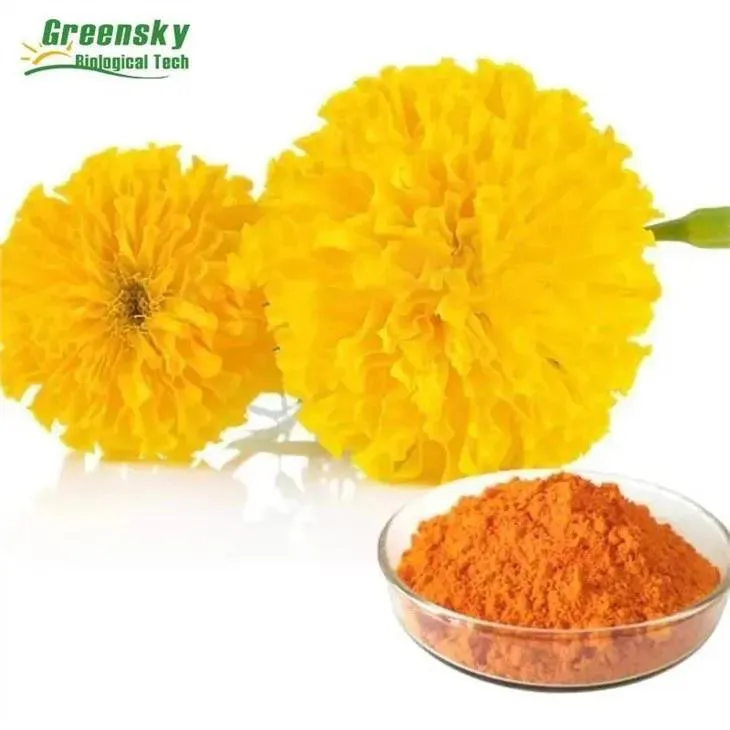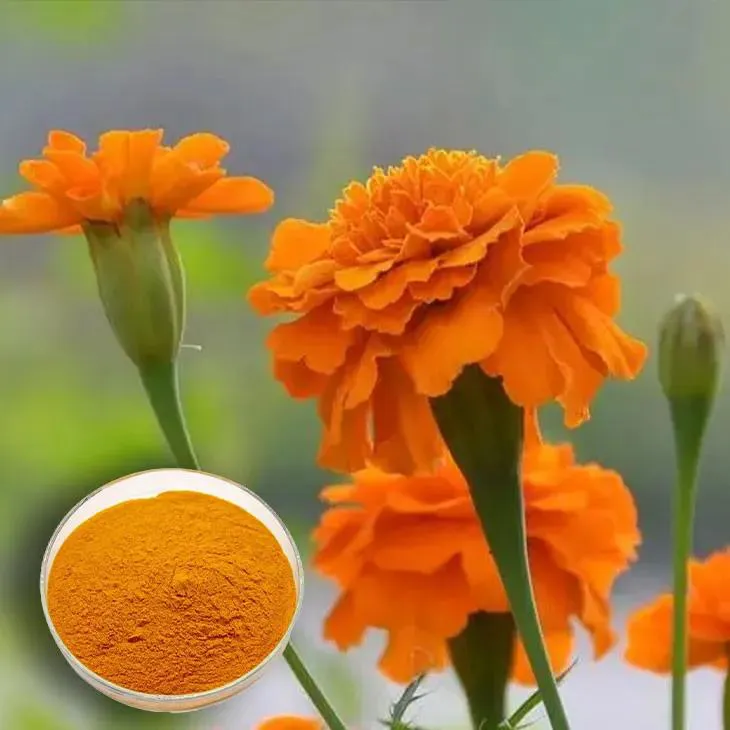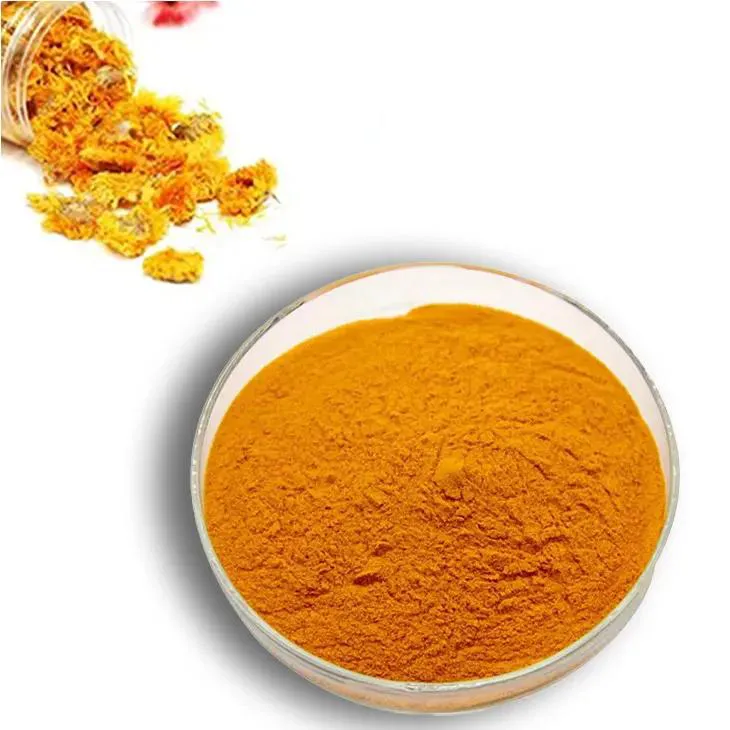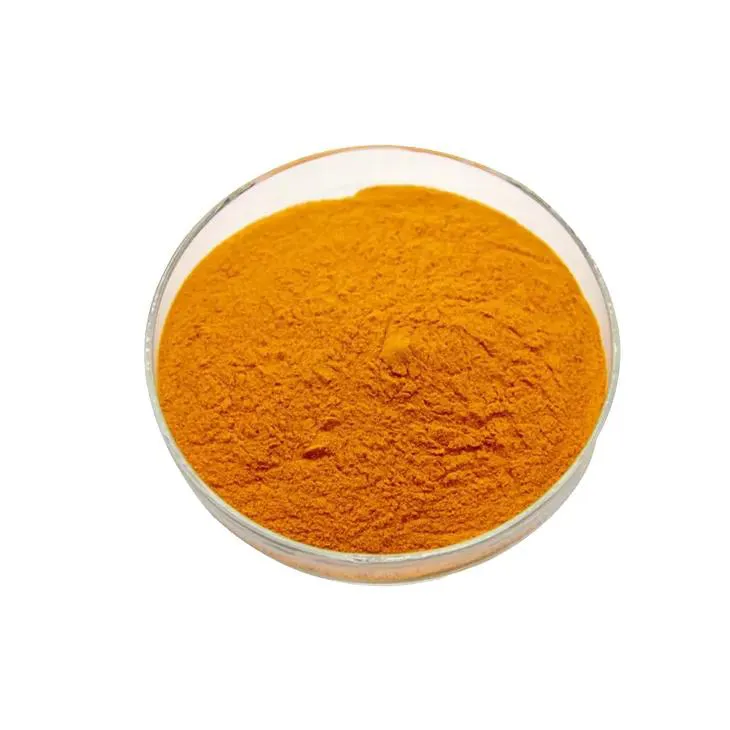- 0086-571-85302990
- sales@greenskybio.com
Is Marigold Extract Good for Eyes? A Comprehensive Review
2025-10-30

In recent years, there has been growing interest in natural supplements for maintaining eye health, with Marigold Extract emerging as one of the most promising options. Extracted from the bright orange and yellow petals of the Tagetes erecta plant, also known as the African or Mexican marigold, this natural substance is rich in two powerful carotenoids—lutein and zeaxanthin. These compounds have been extensively studied for their protective effects on the eyes, especially in shielding against age-related macular degeneration (AMD), cataracts, and the damaging impact of blue light from digital screens. But how effective is Marigold Extract for the eyes, and what does the science truly say? This article explores the components, benefits, research evidence, dosage, and potential side effects of Marigold Extract in relation to eye health.
Understanding Marigold Extract and Its Key Components
Marigold extract is derived primarily from the petals of Tagetes erecta, a species naturally high in carotenoids, particularly lutein and zeaxanthin. These compounds belong to a class of pigments known as xanthophylls, which are responsible for the yellow-orange coloration in many plants and are also found in high concentrations in the macula of the human eye. The macula, located at the center of the retina, is responsible for sharp, detailed central vision. Lutein and zeaxanthin act as natural antioxidants and light filters in the macula, protecting the delicate retinal tissues from oxidative stress and harmful high-energy blue light.
Unlike beta-carotene and other carotenoids that can be converted into vitamin A, lutein and zeaxanthin serve a different role. They are non-provitamin A carotenoids, meaning their benefits are largely protective rather than nutritional. As the human body cannot synthesize these compounds, they must be obtained through diet or supplements. Marigold extract provides a concentrated and standardized source of these nutrients, making it an ideal choice for those seeking to enhance their visual health naturally.

The Role of Lutein and Zeaxanthin in Eye Health
The retina, particularly the macular region, is highly susceptible to oxidative damage due to constant exposure to light and oxygen. Over time, this oxidative stress can lead to the accumulation of free radicals that damage retinal cells, contributing to visual decline and degenerative conditions. Lutein and zeaxanthin help counteract this by neutralizing reactive oxygen species and reducing inflammation within ocular tissues.
Furthermore, these carotenoids act as natural “internal sunglasses.” They absorb blue light, which has a shorter wavelength and higher energy than other visible light. Excessive exposure to blue light—whether from sunlight or prolonged screen use—can cause retinal damage and contribute to eye fatigue. By filtering blue light, lutein and zeaxanthin from marigold extract help preserve visual performance and comfort, especially in the digital age.
Several large-scale studies, such as the Age-Related Eye Disease Study 2 (AREDS2) conducted by the National Eye Institute, have demonstrated the effectiveness of these carotenoids in slowing the progression of AMD and improving visual function. In AREDS2, participants who supplemented with lutein and zeaxanthin experienced a significant reduction in the risk of advanced macular degeneration compared to those who did not. This finding has made marigold-derived carotenoids a central ingredient in many evidence-based eye health formulations.

Scientific Evidence Supporting Marigold Extract
Numerous clinical trials and laboratory studies have supported the role of marigold extract in promoting eye health. A study published in the Journal of Ophthalmology found that daily supplementation with marigold extract containing 10 mg of lutein and 2 mg of zeaxanthin improved macular pigment optical density (MPOD), a key indicator of retinal health. A higher MPOD is associated with better visual acuity, contrast sensitivity, and reduced glare sensitivity.
Another double-blind, placebo-controlled study demonstrated that individuals who took marigold extract for 12 weeks showed significant improvements in visual performance and reduced eye strain, especially among people exposed to prolonged computer screen time. The results suggested that marigold extract not only protects against long-term degenerative diseases but also provides short-term relief from modern-day visual fatigue.
Moreover, research indicates that marigold extract may also protect against cataracts. Oxidative damage to the lens is one of the leading causes of cataract formation, and the antioxidant properties of lutein and zeaxanthin help reduce this risk. A meta-analysis of observational studies found that individuals with higher dietary intake or blood levels of these carotenoids had a significantly lower incidence of cataract development.

Benefits of Marigold Extract for Eye Health
Protection Against Age-Related Macular Degeneration (AMD): Marigold extract provides lutein and zeaxanthin that accumulate in the macula, forming a pigment layer that protects retinal cells from oxidative damage. This helps delay the progression of AMD, one of the leading causes of blindness in older adults.
Reduction of Digital Eye Strain: With increasing screen exposure, digital eye strain or computer vision syndrome has become widespread. The blue-light filtering effect of marigold extract helps reduce eye fatigue, dryness, and discomfort associated with prolonged screen use.
Improved Visual Performance: Supplementation has been shown to enhance contrast sensitivity, brightness perception, and visual acuity. These improvements are particularly valuable for people whose daily activities depend on clear, detailed vision, such as drivers or those working in visually demanding environments.
Cataract Prevention: By reducing oxidative stress in the lens, lutein and zeaxanthin from marigold extract may slow down or prevent the clouding associated with cataracts.
Overall Ocular Protection: The antioxidant and anti-inflammatory properties of marigold extract support general eye health by maintaining healthy retinal tissues and protecting against environmental stressors such as UV radiation.

Dosage and Supplementation
The optimal dosage of marigold extract depends on the concentration of lutein and zeaxanthin. Most clinical studies have used daily doses of 10 to 20 mg of lutein and 2 to 4 mg of zeaxanthin. These amounts are generally considered safe and effective for long-term use. Marigold extract supplements are available in capsules, soft gels, and tablets, and they can also be found as an ingredient in multivitamins designed for vision support.
It is worth noting that the bioavailability of lutein and zeaxanthin is enhanced when consumed with dietary fat, as they are fat-soluble compounds. Therefore, it is advisable to take marigold extract supplements with a meal containing healthy fats such as olive oil, avocado, or nuts.
Safety and Side Effects
Marigold extract is generally well tolerated, and side effects are rare when taken at recommended doses. Some individuals may experience mild digestive discomfort, especially if taken on an empty stomach. People allergic to plants in the Asteraceae family, which includes marigold, may be at risk of allergic reactions and should exercise caution. As with any supplement, pregnant or breastfeeding women and individuals on medication should consult a healthcare professional before use.
Unlike some synthetic supplements, marigold extract is a natural and non-toxic source of carotenoids. Studies have shown no adverse effects even with prolonged use, making it a safe choice for maintaining eye health over time.
Dietary Sources vs. Supplementation
While lutein and zeaxanthin can be obtained through diet, primarily from green leafy vegetables such as spinach, kale, and collard greens, most people do not consume enough of these foods to achieve optimal levels. Marigold extract provides a concentrated, standardized source that ensures consistent intake. For individuals with dietary restrictions or increased visual demands—such as older adults, digital workers, and drivers—supplementation may offer a practical and effective way to support eye health.
Conclusion
The evidence supporting marigold extract as a natural aid for eye health is both compelling and scientifically grounded. Its key components, lutein and zeaxanthin, play vital roles in protecting the retina from oxidative damage, filtering harmful blue light, and maintaining visual performance. Studies have demonstrated their effectiveness in reducing the risk of age-related macular degeneration, preventing cataracts, and alleviating symptoms of digital eye strain. Moreover, marigold extract offers a safe, natural, and easily accessible means of supporting eye health for people of all ages.
In an age where visual demands are increasing due to prolonged screen use and aging populations, marigold extract represents a valuable supplement for preserving vision and maintaining ocular well-being. While it is not a cure for eye diseases, its regular use, combined with a healthy diet and lifestyle, can significantly enhance long-term eye health. Those seeking to protect their eyes from modern visual challenges would do well to consider marigold extract as a part of their daily wellness routine.
Visit Greenskybio.com, a great article source where you can learn about Supplements and their health benefits, you also can get the latest food Supplements. Green Sky Bio provides the best extracts and supplements. It is a Chinese self-developed brand that is trustworthy! Welcome to email us to inquire about our products.
TAGS:- ▶ Hesperidin
- ▶ Citrus Bioflavonoids
- ▶ Plant Extract
- ▶ lycopene
- ▶ Diosmin
- ▶ Grape seed extract
- ▶ Sea buckthorn Juice Powder
- ▶ Fruit Juice Powder
- ▶ Hops Extract
- ▶ Artichoke Extract
- ▶ Mushroom extract
- ▶ Astaxanthin
- ▶ Green Tea Extract
- ▶ Curcumin
- ▶ Horse Chestnut Extract
- ▶ Other Product
- ▶ Boswellia Serrata Extract
- ▶ Resveratrol
- ▶ Marigold Extract
- ▶ Grape Leaf Extract
- ▶ New Product
- ▶ Aminolevulinic acid
- ▶ Cranberry Extract
- ▶ Red Yeast Rice
- ▶ Red Wine Extract
-
Andrographis Paniculata Extract Powder
2025-10-30
-
Fenugreek Extract Powder
2025-10-30
-
Curcumin
2025-10-30
-
Curcuma Longa Extract
2025-10-30
-
Black Rice Extract
2025-10-30
-
Selenium yeast
2025-10-30
-
Buckthorn bark extract
2025-10-30
-
Dan Shen Root Extract/Salvia Root Extract
2025-10-30
-
Alfalfa Meal
2025-10-30
-
Peppermint Oil
2025-10-30





















